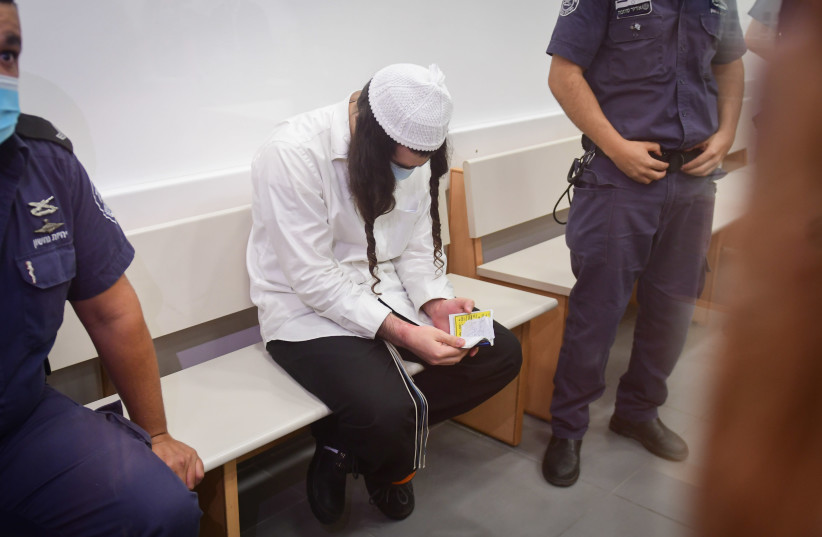The groom from the 2015 “hate wedding,” in which participants celebrated the Duma arson, was sentenced to four months of community service for incitement by the Jerusalem District Court on Sunday.
Yakir Ashbel, the groom, was also given a NIS 2,000 fine and three months in prison if he commits further acts of incitement within three years of the sentence. The judge had decided on the lower end of punishment for the crime, as the man was now with a child and had lived a relatively civil life since the incident, which was several years prior.
While Ashbel’s legal team contended that he was under the influence of alcohol and had simply gone along with the actions of party-goers, the prosecution had said that as the groom he had a responsibility for the wedding event.
Another participant received 180 hours community service and a NIS 2,000 fine for his role in celebrations of the Molotov cocktail attack on the West Bank Dawabshe family home that killed 18-month-old Ali Dawabshe and his parents Sa’ad and Riham.
The court had also decided that Tzvi Yehuda Zlatkin had expressed remorse over his actions, and had significantly changed his life since the incident.
Right-wing legal aid organization, Honenu, which had been involved in the defense of the men, said that it was considering appealing the verdict of what it described as a political trial.
“We believe that this case was political persecution by the prosecutor’s office,” said Honenu attorney Moshe Polski. “The court adopted the prosecution’s absurd thesis that it saw the event as a demonstration of incitement. This indictment should never have happened.”

"The court adopted the prosecution's absurd thesis that it saw the event as a demonstration of incitement. This indictment should never have happened."
Moshe Polski
The sentencing in 2020
Polski said that while the spontaneous event was disrespectful, it was not intended as incitement to violence. Polski noted on Sunday that physical interrogation measures were used by the Israel Security Agency (Shin Bet) against Amiram Ben Uliel and his accomplices in the attack. The lawyer said that the event was in part a response to the intelligence agency’s tactics and that the “hate wedding” trials were diversions from the conduct of state authorities.
Ben Uliel was sentenced to three life sentences in 2020 for the attack that also left five-year-old Ahmed with severe burns. A teen accomplice was sentenced to three and a half years in prison.
The Justice Ministry noted that some of those in attendance at the “wedding” were acquaintances of the suspects arrested for the terrorist attack.
Five other adults were convicted for incitement to violence after footage was circulated from the “wedding,” held five months after the Duma arson. On March 2, four men who were minors at the time of the “wedding” were convicted. A fifth from the minor trials was acquitted, as was the “wedding” singer in the adult trials.
In the videos, photos of the baby and parents attached to poles were brought to the dance floor. Some celebrants danced with the photos with M4 and M16 rifles, pistols, mock guns, knives and glass bottles made up to resemble Molotov cocktails. Others stabbed and set fire to the pictures.
The footage caused outrage in Arab and Jewish communities, who dubbed the incident the “hate wedding.”
